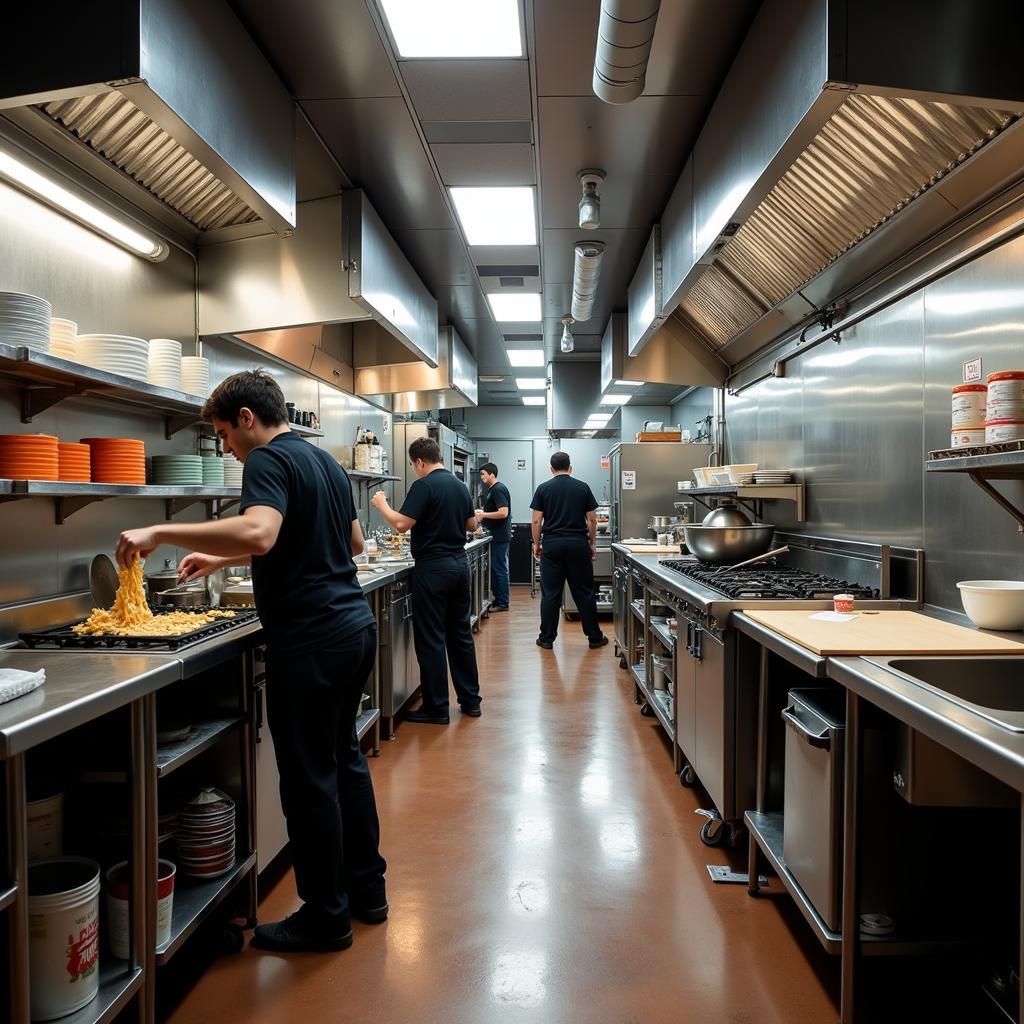Venturing into the vibrant world of food trucks? It’s an exciting journey fueled by passion, culinary creativity, and a dash of business acumen. But before you fire up the grill and hit the streets, there’s a crucial ingredient you need to understand: the Food Truck Agreement. This legally binding document sets the stage for your mobile culinary venture, outlining the terms of your partnership with your chosen commissary.
The What and Why of Food Truck Agreements
Simply put, a food truck agreement is a contract between a food truck owner and a commissary – a licensed commercial kitchen space providing the necessary infrastructure for food trucks to operate legally and safely. This agreement dictates the terms of use for the commissary’s facilities, including kitchen space, storage, waste disposal, and more.
Think of it as the rulebook for your food truck’s home base. It outlines each party’s responsibilities, ensuring a smooth and legally compliant operation.
Key Ingredients of a Food Truck Agreement
While specific clauses vary, here are some key elements typically found in a food truck agreement:
1. Parties Involved and Term of Agreement
This section clearly identifies the food truck owner and the commissary, establishing the legal entities bound by the agreement. It also defines the agreement’s duration, whether it’s a fixed term (e.g., one year) or month-to-month.
2. Facility Use and Services
This crucial part details the commissary’s facilities and services accessible to the food truck owner. This includes:
- Kitchen Access: Specifies the permitted hours for kitchen use, scheduling procedures, and any limitations.
- Storage: Outlines the allotted storage space for food, supplies, and equipment, including any restrictions on storage types.
- Waste Disposal: Defines the procedures for disposing of food waste, grease, and other waste products, adhering to health and safety regulations.
- Utilities: Clarifies the inclusion and potential additional charges for utilities like water, electricity, and gas.
 Inside a bustling food truck commissary kitchen
Inside a bustling food truck commissary kitchen
3. Fees and Payment Schedule
This section outlines the financial aspects of the agreement, including:
- Rental Fees: Details the monthly or periodic fees for using the commissary’s facilities and services.
- Security Deposit: Specifies any refundable deposit required as security against potential damages or unpaid fees.
- Late Payment Penalties: Outlines the consequences of late rent payments, which may include late fees or even termination of the agreement.
4. Responsibilities and Maintenance
This part delineates the responsibilities of both parties regarding:
- Food Truck Owner: This typically includes maintaining a clean and sanitary workspace within the commissary, adhering to all food safety regulations, and obtaining necessary permits and licenses.
- Commissary: This usually involves maintaining the overall cleanliness and functionality of the shared facilities, ensuring proper waste disposal, and addressing any maintenance issues promptly.
5. Insurance and Liability
This section safeguards both parties by outlining insurance requirements and liability limitations:
- Food Truck Owner: Typically requires the food truck owner to maintain specific insurance policies, including general liability and product liability coverage, protecting against potential claims.
- Commissary: Often includes clauses limiting the commissary’s liability for specific events, such as damage to the food truck owner’s equipment or food spoilage, unless caused by the commissary’s negligence.
6. Termination Clause
This part defines the conditions under which the agreement can be terminated by either party, such as breach of contract, non-payment of fees, or failure to comply with regulations.
“A Solid Food Truck Agreement: Your Recipe for Success” – Chef Michael Scott, Food Truck Consultant
“Don’t rush into signing a food truck agreement without understanding all the clauses,” advises Chef Scott, a veteran food truck consultant. “Negotiate terms that benefit both parties and ensure the agreement aligns with your business needs and growth plans. A well-structured agreement sets the stage for a successful and fulfilling food truck journey.”
Conclusion
Navigating the legal aspects of starting a food truck business might seem daunting, but a thorough understanding of the food truck agreement is your first step towards success. Take your time, ask questions, and ensure the agreement aligns with your vision.
Need help finding the perfect commissary or navigating the intricacies of a food truck agreement? We’re here to help! Contact us at Phone Number: 02437655121, Email: [email protected] Or visit us at: 3PGH+8R9, ĐT70A, thôn Trung, Bắc Từ Liêm, Hà Nội, Việt Nam. Our dedicated team is available 24/7 to guide you on your culinary journey.